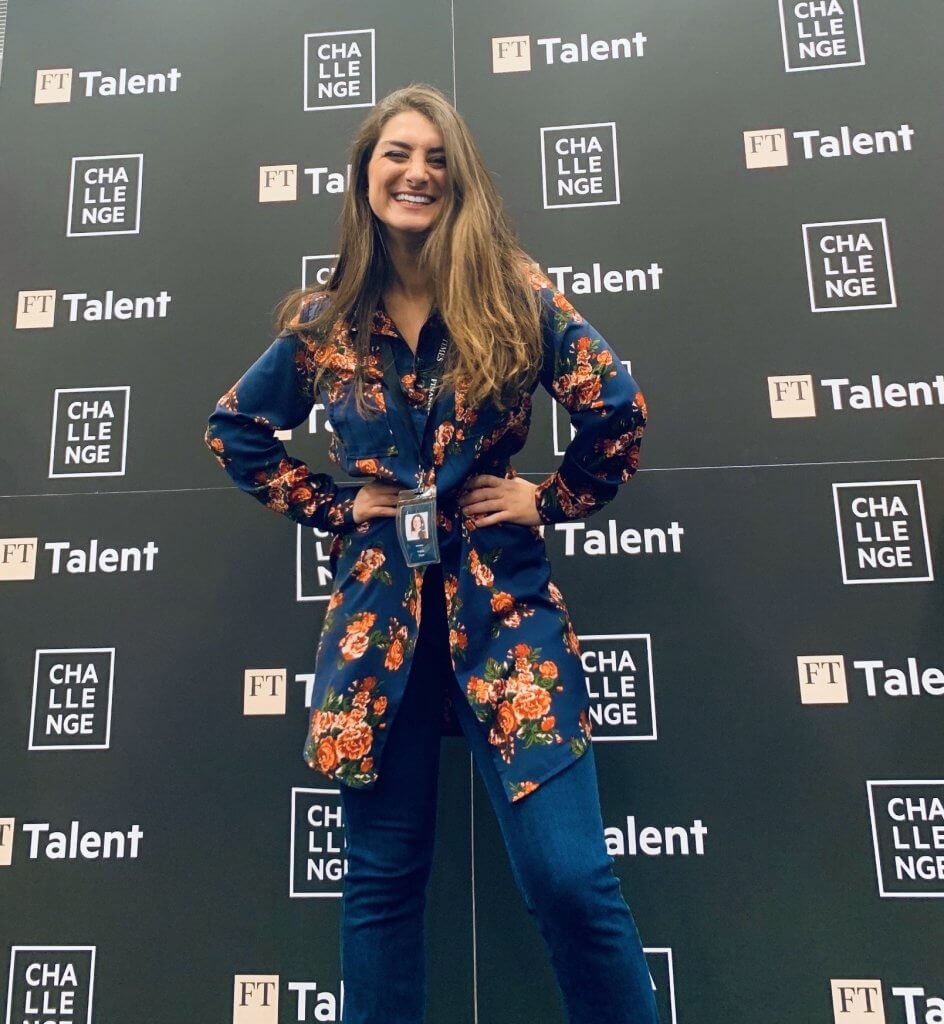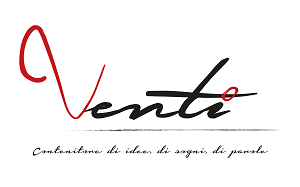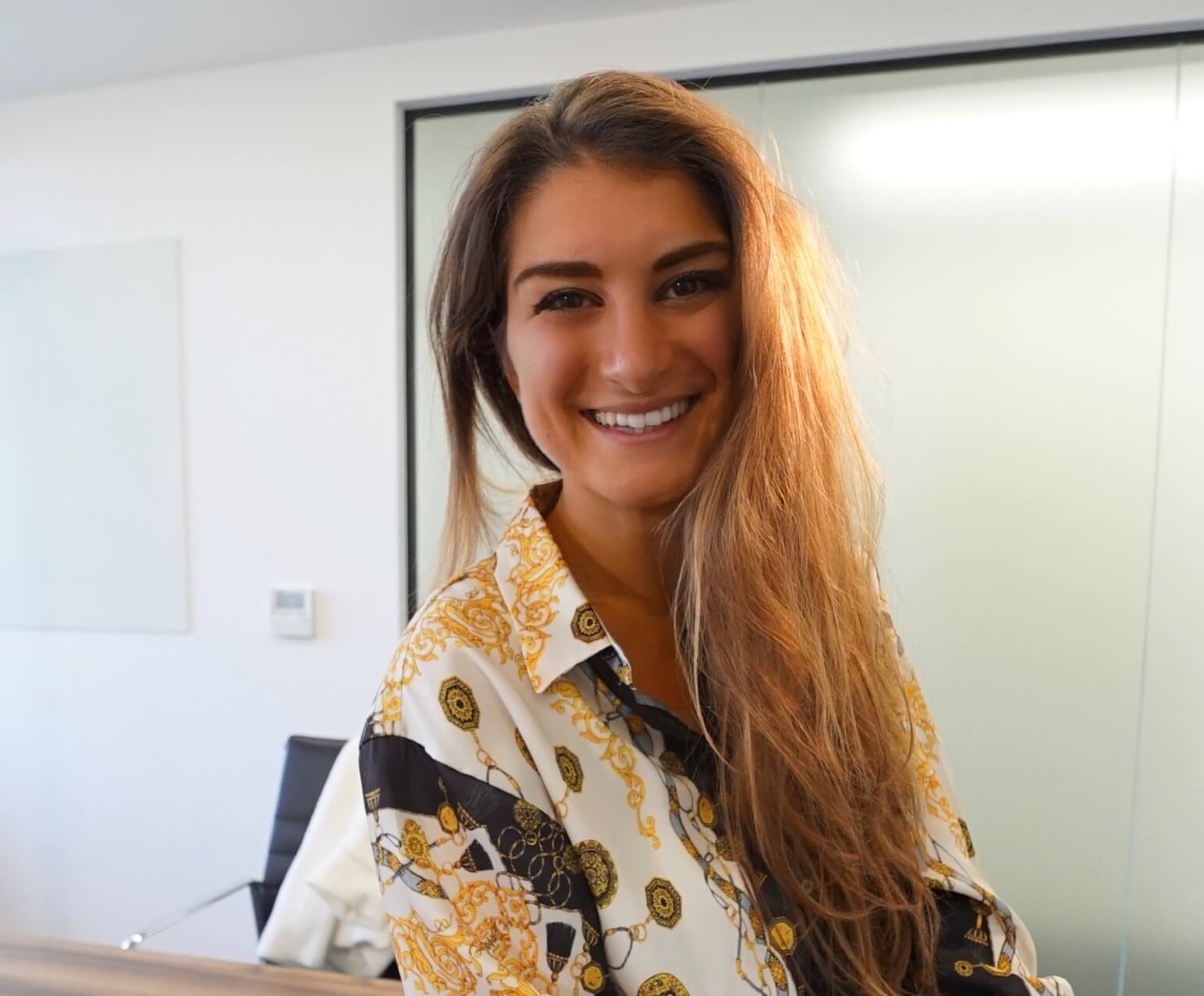We have previously spoken about debunking some prejudices about Italians abroad. Today, Virginia Stagni is speaking with us about her career and project plans and being an Italian abroad in a leadership position at one of the most important editorial boards worldwide.
Hi, Virginia, many thanks for having accepted this interview.
Please introduce yourself.
I’m Virginia Stagni, I’m 27 years old, from Bologna, Italy and I live and work in London. I studied at Bocconi University in Milan and at London School of Economics, where I graduated with a Masters in Media and Communication.
Today, I’m a Business Development Manager at the Financial Times. I started working as a manager when I was only 24 and I am the youngest manager in the Financial Times history.
My role involves keeping the Financial Times among the most innovative media companies, uncovering new opportunities for the FT to be successful, and coordinating a team of 5 people and, for some events, a team of 40 people.
I also am the director of a project called FT Talent Challenge.
What’s the FT Talent Challenge?
It’s a hackathon which was started in 2018 focused on business involving young international talents from all over the world. The Financial Times invites people from the age group under 30-35 to participate in various debates, including the future of media and information. Every participant can ask questions and meet brilliant professionals from the FT and our partners. Some of the participants have been hired by FT and our partners, so it’s also a great opportunity for networking. We have organised some FT challenges in London and the next ones will be held in New York and Singapore. Follow me on LinkedIn to be notified of the next calls for applications which are closed at the moment.
What’s the work environment like?
In the FT offices in London, New York and Hong Kong, we know about differences between people and embrace different cultures.
T
Have you ever faced any challenges being a woman in your role?
No, never. But when I sometimes worked in other countries and I was the only woman in the room, I felt a suspicious attitude like “does she know what she’s doing?”. This would probably not happen with a man. Also, many times I felt the fact that I was the only Italian in the room.
Based on your experience, do you think that Italians abroad are victims of prejudices and stereotypes?
Yes, but we are very cool in the way we take it as we don’t take it so personally. Many people say to me “pasta, pizza
Also, though we are from different regions in Italy, like we have different cultures and “nationalities”, we are people who are good at getting out of our comfort zone, we adapt. I look around and I see Italians working in big companies and they’re the best at what they’re doing. Italians are the ones that blossom out of their comfort zone.
What are your future projects and goals?
Apart from continuing to work at FT, I am writing a book about Journalism and Business and I’ve recently started a company called Good Saints. I enjoy creating very innovative projects and I want to bring awareness about fair trade and sustainability, as in the case of Palo Santo, coffee, cocoa, etc.
Any suggestions for people that wish to work abroad?
Being innovative, understanding the workplace and the market. Understanding how the corporation or the firm works is crucial but also being able to discuss having achieved high diplomacy skills.
Thanks, Virginia, for sharing your career experiences and thoughts with us. We wish you all the best for your career progression and projects and hope that somebody among our readers will join the FT Talent Challenge!

Marina, classe '94, laureata in legge e specializzata in diritto internazionale, sintesi perfetta del suo interesse per i diritti umani e la sua voglia di scoprire le diverse sfaccettature dei paesi del mondo. Appassionata di yoga, vive a Dublino.


